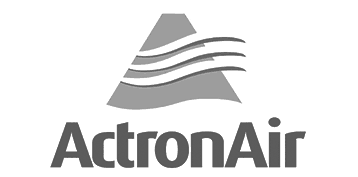Today
20°
Fri
20°
Sat
25°
Sun
26°
Mon
26°
Tue
27°
The extra costs associated with owning an old air conditioner
Wednesday, 13th August, 2014
To repair or replace? That is the question on most people’s minds, especially when it comes to air conditioning units. With the summer months getting hotter every year, these cooling appliances aren’t considered luxuries anymore. Now, air conditioning units have become necessities.
However, the question remains, should you still keep your old unit or replace it with a brand-new one? To help you decide, here are some points to consider:
- An air conditioning unit’s life expectancy is around 10 years. Repairs can be costly beyond this point.
- Older units are less efficient than newer models. This is due to the improvements in technology and government-imposed energy standards.
- Units built during the 1990s typically have an EER (Energy Efficiency Ratio) of 7 while newer models characteristically have a rating of 10 or above. Higher scores mean increased energy efficiency.
- If your air conditioning unit is more than 5 years old, it is probably better to replace it with a new one.
Split-system air conditioners with a 5- Star Energy Rating and 2.5kW output have, on average, an annual energy cost of $27.00 for a small room. Older units, on the other hand, typically consume around in excess of $35.00 annually. Although you may spend a few thousand for a new unit, energy savings is still a top consideration.
When choosing a new air conditioner, you should consider:
- Your room’s required British Thermal Unit or BTU
BTU is used to rate an air conditioner’s power output in kilowatts (kW). Here’s a simple formula to figure out the right sized unit for your needs:
- Living areas require at least 160-watts (0.125kW) per square metre for maximum cooling.
Other factors like ceiling height, room insulation, age of the house and sun position are additional things to consider when shopping for a brand new air conditioning unit.
- Reverse Cycle or Cooling-Only unit, what should you choose?
Cooling-only units will simply cool your room, while a reverse cycle unit can both cool and heat a room. If you use a heater during the winter months and a cooler during summer, better get a reverse cycle unit.
- About Split-type air conditioning systems
This system is quieter and less bulky compared to its window-type counterpart. They are a bit more expensive and require trained professionals to install them. Look for experienced air conditioning installers such as Quality Air to prevent a voided warranty.
- Consider energy features
Look out for energy-saving features like Economy Mode, Thermostat Control and a Programmable Timer to maximise your unit’s energy efficiency. These also help set or fine-tune the right comfort level in your home.
Thanks to modern technology, it’s easier to replace ageing air con units. Quality Air can help you choose the right units for your home or office. For more information, call us on 07 3395 7633.
Share
Categories







